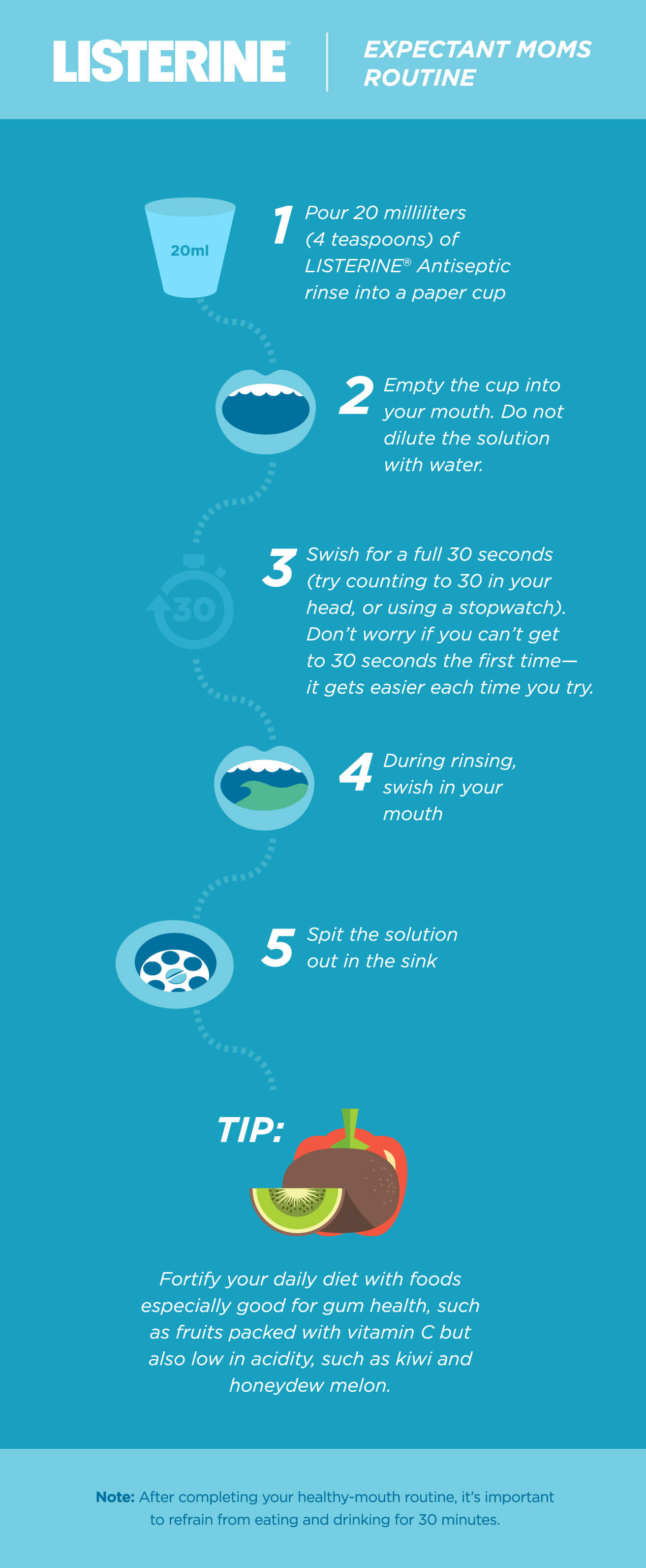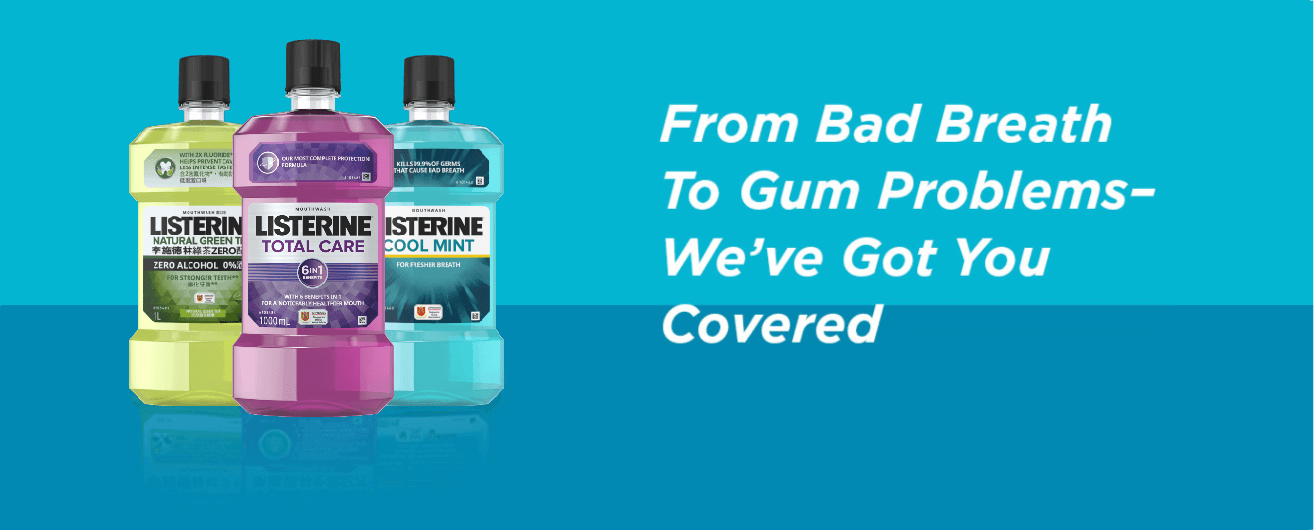When you are pregnant, your hormones are constantly fluctuating, which can have an effect on the health of your gums and teeth, making your mouth more vulnerable to bacteria and plaque. This is why pregnancy is a risk factor for gum disease. In fact, one study found that many pregnant women need better dental care to protect their gums and teeth. To protect your oral health, follow this rinse routine twice daily so you have one less thing to worry about over the next 9 months.

Special Considerations for Pregnant Women
Gum Irritation
Expecting a baby does not mean you automatically have problems with your gums or teeth. It just means you’ll want to take extra-special care of your mouth during this time to maintain your oral health. Some of the unusual things you can expect to possibly happen during your pregnancy are inflamed gums that are irritated, puffy and red and bleed a little when brushed or flossed (if you experience these symptoms, know that they typically disappear after pregnancy).
Mouth Growths
During the second trimester, some pregnant women also experience overgrowths of tissue that appear on their gums. These are noncancerous growths that are dark purplish-red in color and may be a form of plaque. Visit your dentist for advice.
Tips for Oral Health During Pregnancy
Tell your dentist that you are pregnant, which may affect treatments and x-rays.
If your gums flare up, start brushing after each meal.
Be vigilant about flossing daily.
Rinse daily with an antimicrobial mouthwash.
If and when you experience morning sickness, rinse your mouth thoroughly with water afterward, to reduce contact of bacteria with gums and teeth.
Maintain Overall Mouth Health
Remember that a full rinse routine also includes brushing and flossing.
Use Smart Tools
Toothbrushes with soft bristles or electric toothbrushes
Fluoride toothpaste
LISTERINE® Antiseptic mouthwash that kills germs that cause bad breath, plaque and gum disease
LISTERINE® dental floss to clean between teeth.
To keep breath fresh on the go, pick up a pack of LISTERINE POCKETPAKS® breath strips or LISTERINE POCKETMIST® spray mist.
Listfeed
The Most Common Cause Of Gum Disease (And 7 Potential Others)
Listfeed
5 Not-So-Innocent Habits That Harm Your Mouth
Ask Mouth Coach
Why Are My Gums Bleeding?
Mouth Fact
4 Truths That Protect Your Gums (And Teeth)
SPECIAL CONSIDERATIONS FOR PREGNANT WOMEN
GUM IRRITATION
Expecting a baby does not mean you automatically have problems with your gums or teeth. It just means you’ll want to take extra-special care of your mouth during this time to maintain your oral health. Some of the unusual things you can expect to possibly happen during your pregnancy are inflamed gums that are irritated, puffy and red and bleed a little when brushed or flossed (if you experience these symptoms, know that they typically disappear after pregnancy).
MOUTH GROWTHS
During the second trimester, some pregnant women also experience overgrowths of tissue that appear on their gums. These are noncancerous growths that are dark purplish-red in color and may be a form of plaque. Visit your dentist for advice.
TIPS FOR ORAL HEALTH DURING PREGNANCY
Tell your dentist that you are pregnant, which may affect treatments and x-rays.
If your gums flare up, start brushing after each meal.
Be vigilant about flossing daily.
Rinse daily with an antimicrobial mouthwash.
If and when you experience morning sickness, rinse your mouth thoroughly with water afterward, to reduce contact of bacteria with gums and teeth.
MAINTAIN OVERALL MOUTH HEALTH
Remember that a full rinse routine also includes brushing and flossing.
USE SMART TOOLS
Toothbrushes with soft bristles or electric toothbrushes
Fluoride toothpaste
LISTERINE®
Antiseptic mouthwash that kills germs that cause bad breath, plaque and gum disease
LISTERINE®
dental floss to clean between teeth.
To keep breath fresh on the go, pick up a pack of LISTERINE POCKETPAKS®
breath strips or LISTERINE POCKETMIST®
spray mist.

